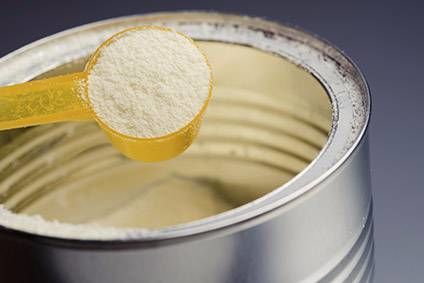
Nestle has claimed it has developed the first infant formula to contain two oligosachardies contained in human breast milk, (HMOs), which are said to be associated with healthier immune systems and a reduction in the incidence of disease in babies.
Ten years of research have gone into the development of the formula, which is being used in Spanish hospitals and has just been made available in pharmacies in the country.

Discover B2B Marketing That Performs
Combine business intelligence and editorial excellence to reach engaged professionals across 36 leading media platforms.
Scientific studies have associated the consumption of the oligosaccharides with a reduction in respiratory infections and fewer pathogenic bacteria in babies, resulting in fewer antibiotics being required. “This scientific breakthrough offers important benefits in the field of infant nutrition,” Dr Marisa Vidal, the medical director of infant nutrition for Nestle’s Spanish arm, said. “It’s a great step forward in fulfilling our desire to improve quality of life and contribute to a healthier future.”
Oligosaccharides are the third most abundant solid component in breast milk after fat and lactose, and they play a role in the development and wellbeing of the baby, boosting the immune system and promoting healthy gut bacteria. In breastfed babies, HMOs feed the good bacteria in a baby’s gut, where about 70% of the immune system exists. Research shows some are also absorbed in the blood stream to support a baby’s developing immune system beyond the gut.
Although oligosaccharides in breast milk have been studied for over a century, Nestle said it is the first company to replicate and produce two HMO molecules for infant formula. These new ingredients have been positively evaluated by the European Food Safety Authority and have been approved by the European Commission and the Food and Drug Administration in the US.
“This is a breakthrough in infant feeding, since until now oligosaccharides have only been found naturally in breast milk,” Dr Jose M Saavedra, the global medical director for the Swiss food giant’s Nestle Nutrition division, said. “Now as a result of more than a decade of extensive research, Nestle has been able to replicate these components, which are identical to those found in breast milk.

US Tariffs are shifting - will you react or anticipate?
Don’t let policy changes catch you off guard. Stay proactive with real-time data and expert analysis.
By GlobalData




